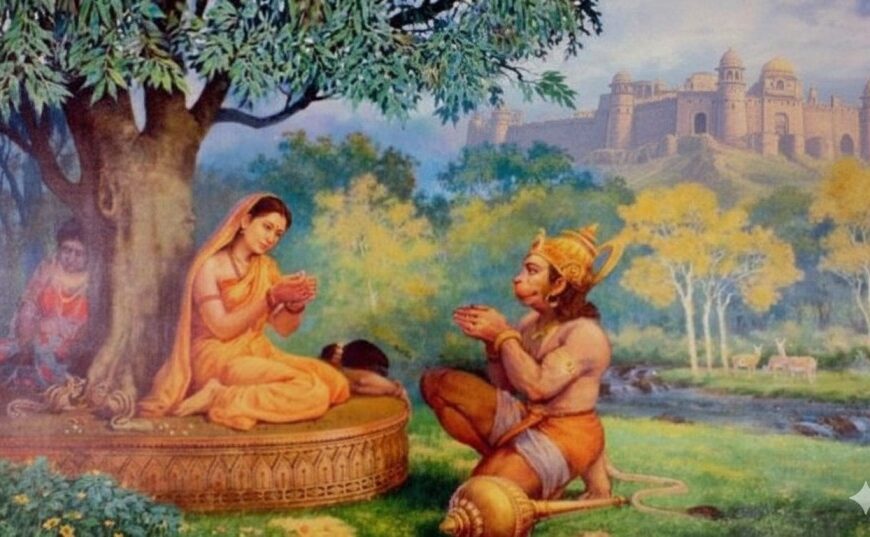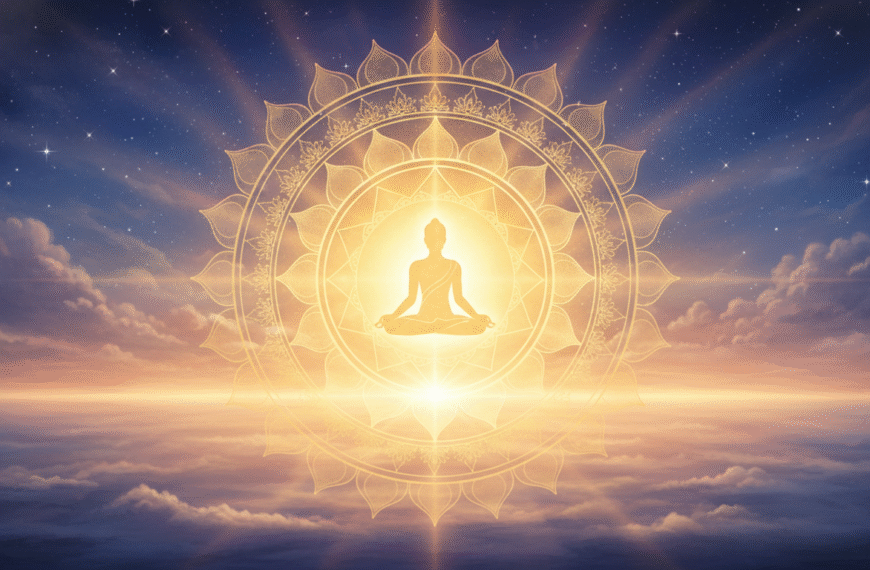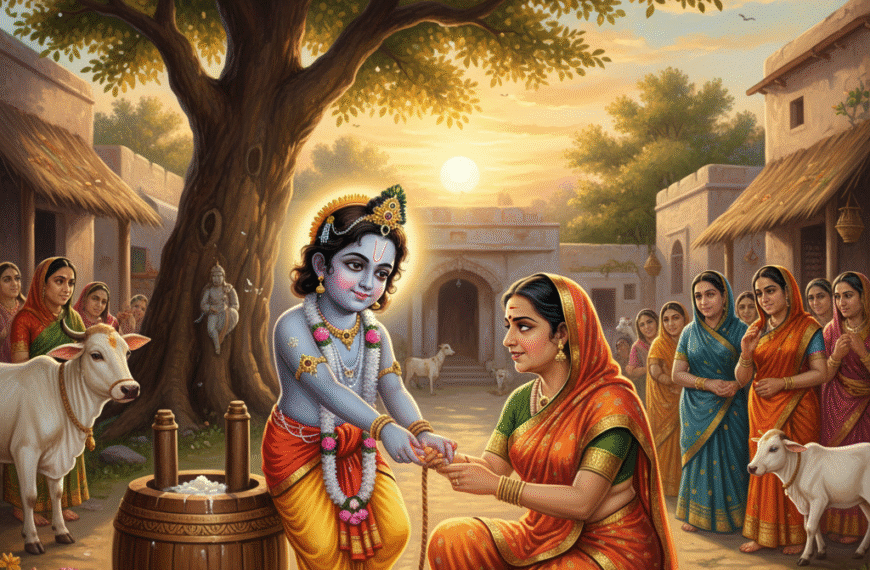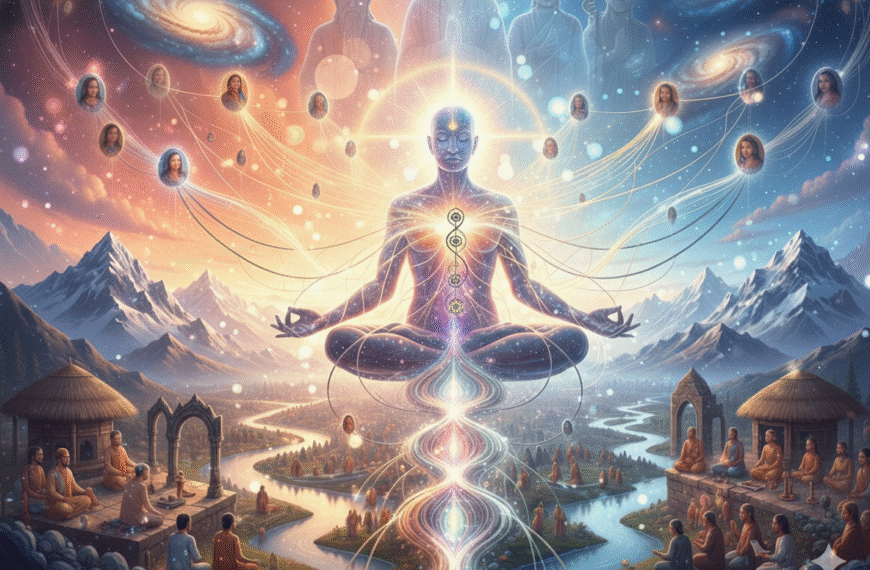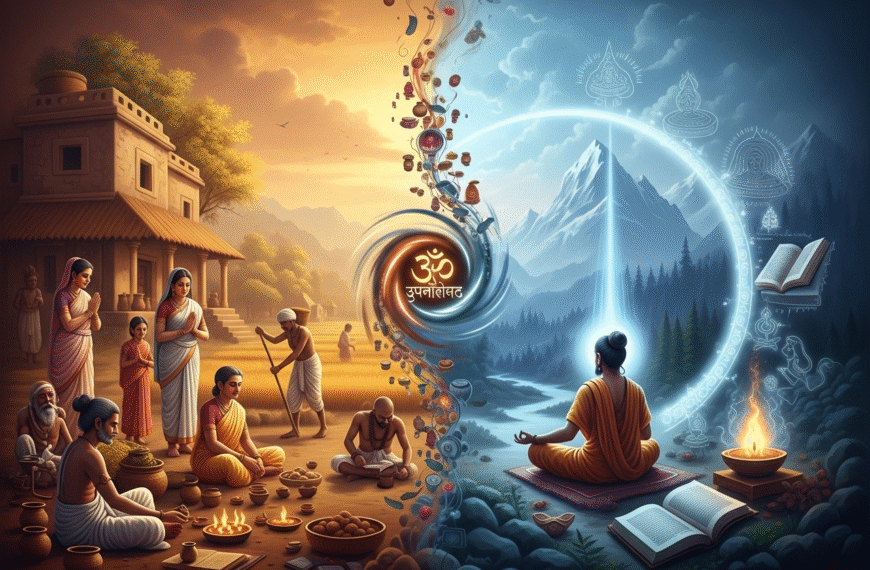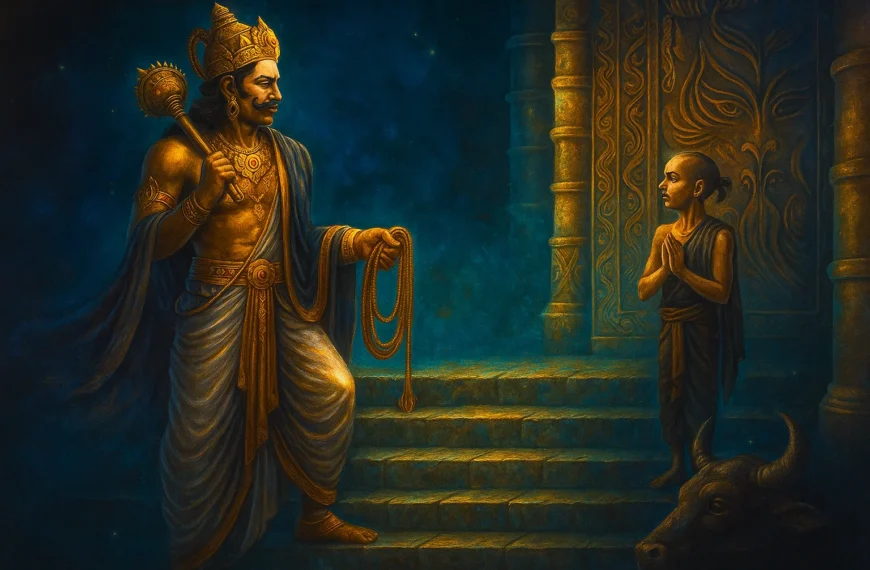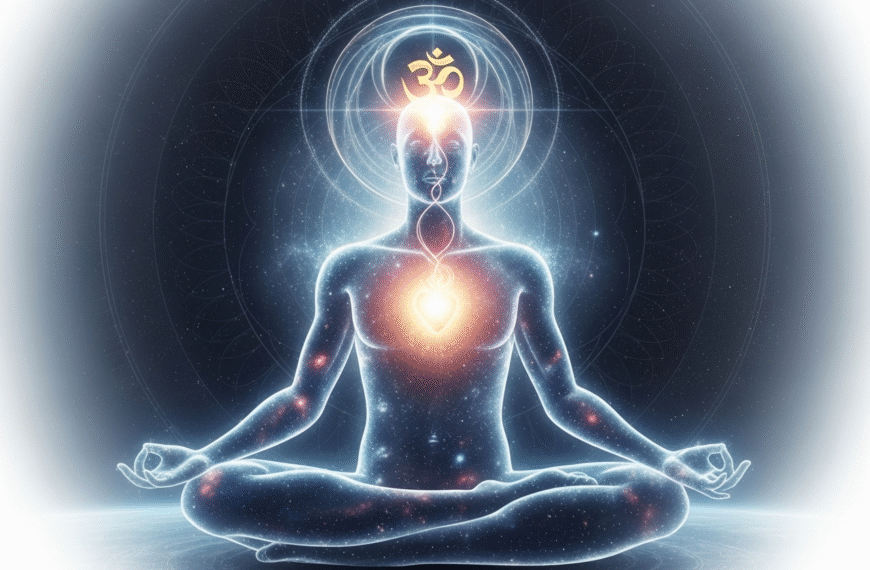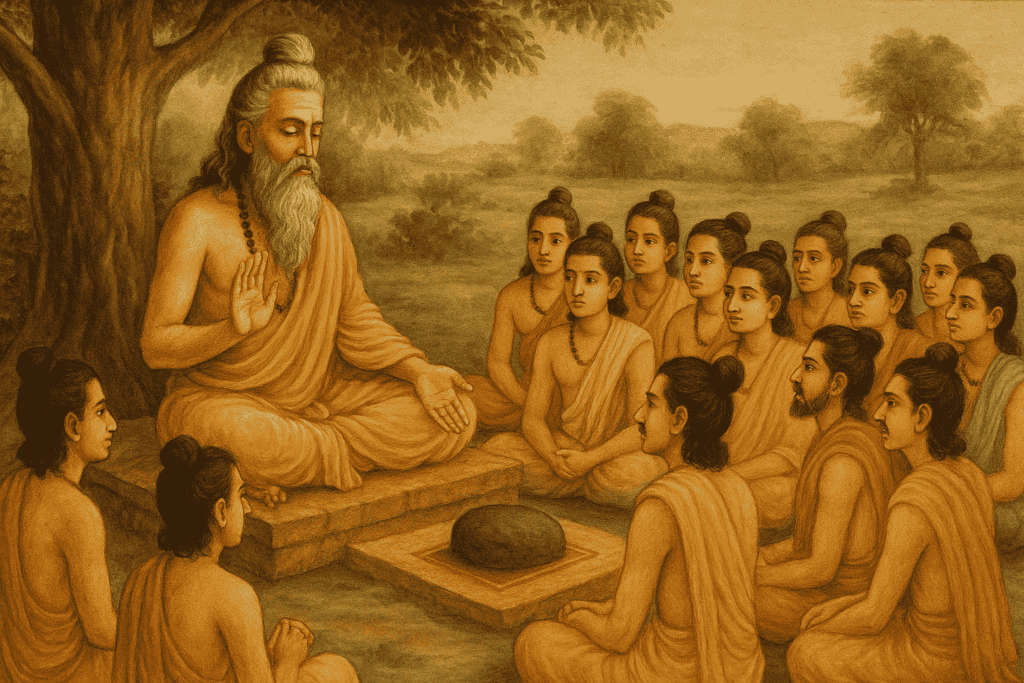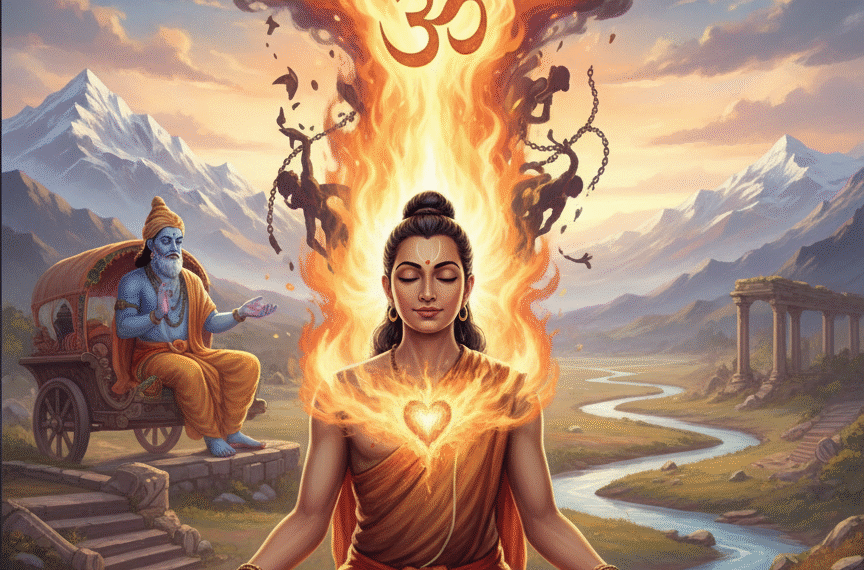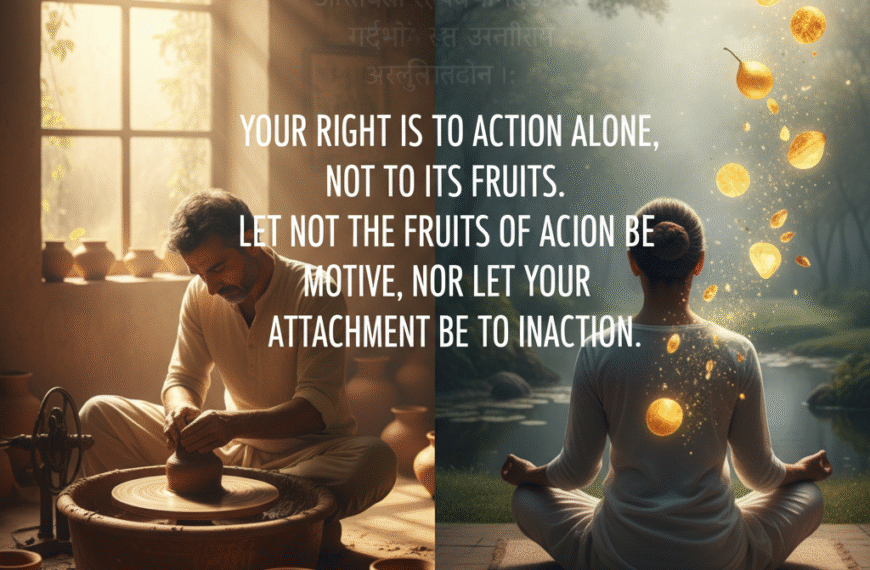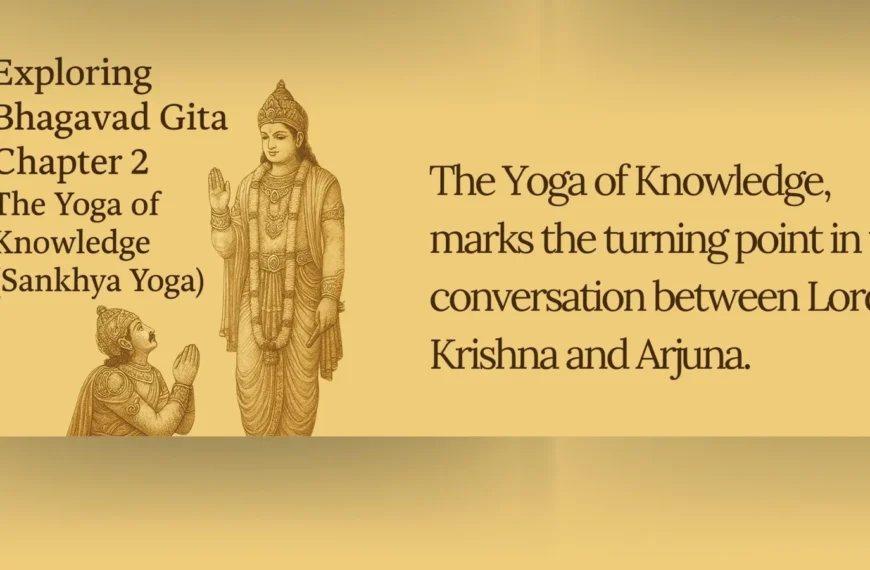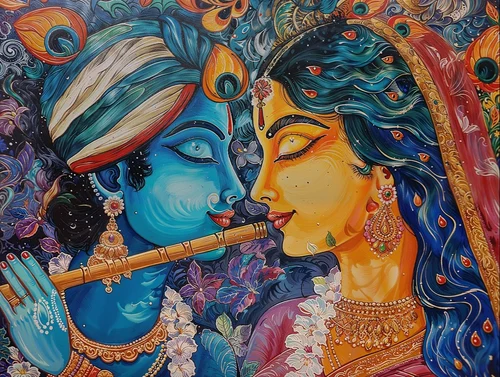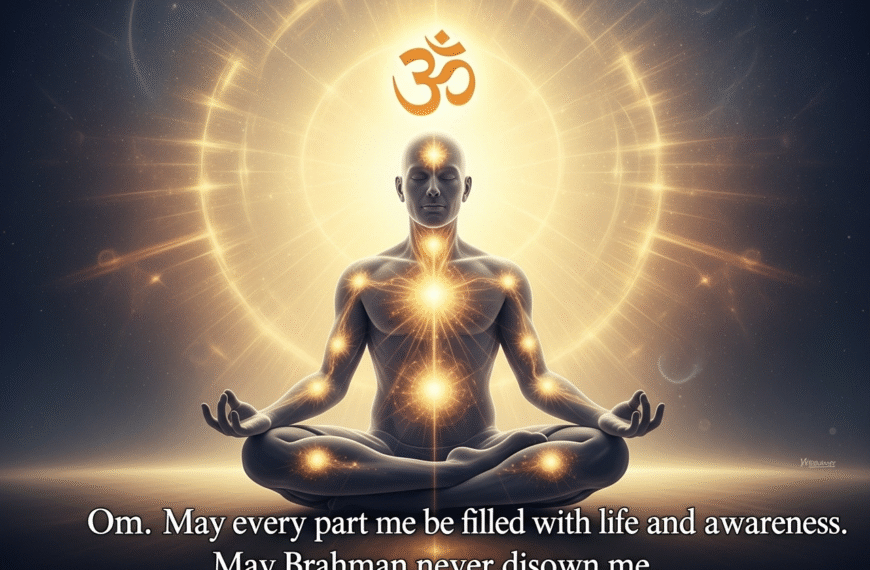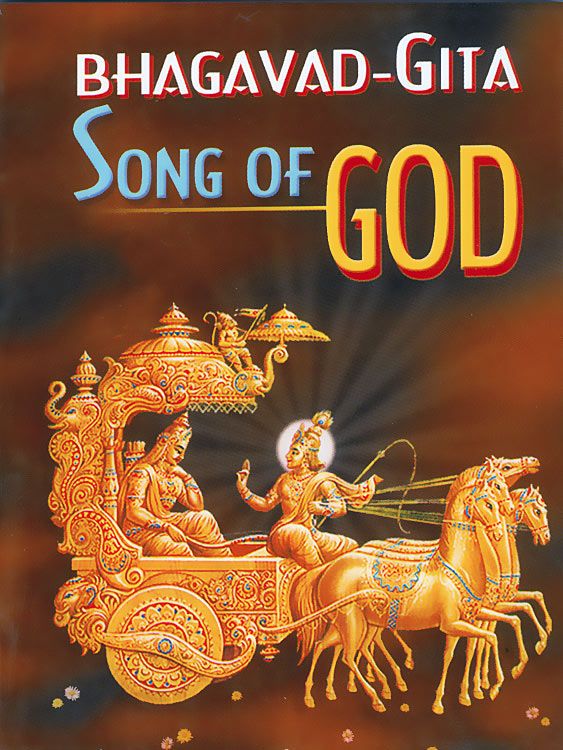
INTRODUCTION
Within the vast ocean of the world’s sacred literature, there are texts that function as anchors, and there are those that are lighthouses. The Srimad Bhagavad Gita—the “Song of the Blessed One”—is both. It is at once a foundational stone of spiritual thought and a blazing beacon that illuminates the path for humanity’s most timeless and intimate quest: the search for meaning, purpose, and liberation in a world of paradox and impermanence.
The Gita emerges from the heart of a truly colossal epic, the Mahābhārata, a work so vast it is said to contain the whole of human experience. Within this sprawling chronicle of a civilization at its breaking point, the Gita unfolds at a moment of supreme crisis. It is not set in a serene monastery or a peaceful grove, but on a battlefield, poised between two great armies ready for a fratricidal war. This setting is no mere dramatic backdrop; it is a profound metaphor for the perennial battlefield of the human soul.
At its epicenter is a moment of profound human fracture. Arjuna, the peerless warrior and protagonist, a man of impeccable virtue and strength, suddenly beholds his own kin—his teachers, his grandfathers, his cousins, and his friends—arrayed against him. The sheer horror of the impending violence, the collision of his love for his family with his duty as a warrior, shatters his resolve. He collapses in a state of existential paralysis, his bow slipping from his hands. This is the archetypal dark night of the soul, the moment when all known moral and ethical codes fail, and the self stands naked and trembling before the abyss of an impossible choice.
Into this abyss of the soul steps Bhagavan Śrī Kṛṣṇa, who is not only Arjuna’s charioteer and friend but the embodiment of the Divine itself, the universal consciousness made manifest. What follows is not a sermon of consolation or a simple command to fight. It is an unfurling of reality. Kṛṣṇa’s teaching, the Gita, dives past the surface-level dilemma to address the very nature of action, duty (dharma), selfhood, and the cosmos. It is a sublime and soul-elevating roadmap from confusion to clarity, from bondage to freedom.
Because it speaks to this fundamental human condition, the Gita’s wisdom is radically universal. Its teachings are not predicated on a specific cultural or religious identity, but on the immutable laws of consciousness. It is a scripture for any human being who has ever questioned their purpose. It masterfully synthesizes three primary pathways to the ultimate reality, or Mokṣa (liberation):
- Karma Yoga: The path of selfless, consecrated action, where one learns to act with excellence and integrity without being enslaved by the fruits of that action.
- Jñāna Yoga: The path of discerning wisdom, a profound philosophical inquiry into the nature of the Real and the Unreal, the eternal Self and the transient ego.
- Bhakti Yoga: The path of ecstatic devotion, where the heart’s boundless capacity for love is channeled toward the Divine, transforming every perception into an act of worship.
These are not mutually exclusive dogmas, but interwoven threads in a single, glorious tapestry of human potential. A beautiful and ancient Indian metaphor holds that the Upanishads, the mystical heart of the Vedas, are a herd of wish-fulfilling cows. Śrī Kṛṣṇa is the celestial milkman who, with Arjuna as the willing calf, draws from them their essential nectar—and the Gita is that ambrosial milk, offered for the nourishment of all humanity.
In another powerful image, the Gita is described as the one sturdy vessel capable of ferrying the soul across the turbulent, cyclical ocean of Samsara—the world of suffering, change, and rebirth—to the safe and eternal shore of reality. This is why its lofty and sublime ideals have been a source of profound inspiration for thinkers, poets, scientists, and mystics across the globe.
To engage with the Gita—even to study a single verse with an open heart—is not merely to read an ancient text. It is to enter into this timeless dialogue. It is to place oneself in the chariot alongside Arjuna and to receive, directly, the universal wisdom that stills the agitated mind and awakens the silent, blissful Self within. It is an invitation to transform your own life’s battlefield into a field of enlightenment.
Welcome to the Song of the Self.
